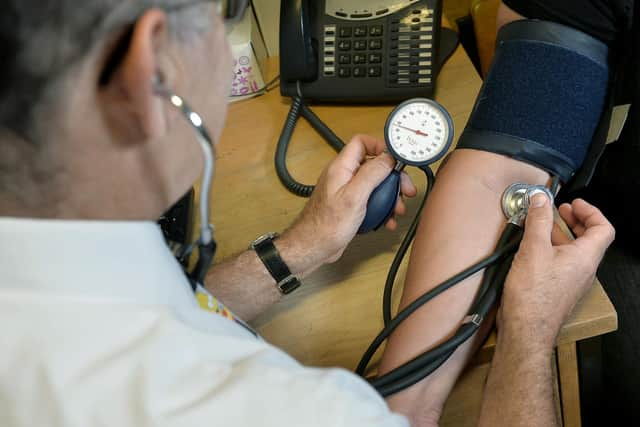Pressure on GP services in Northern Ireland leading to locums being paid £1,000 a day, audit office report finds
and live on Freeview channel 276
The report from Auditor General Dorinnia Carville, said that almost one in three GP practices in the region has sought crisis support services in the last four years.
Ms Carville's report considers a range of challenges facing the primary care sector including funding and workforce, and highlights the urgent need for long term planning to address these.
Advertisement
Hide AdAdvertisement
Hide AdThe report said: "Pressures in general practice have increased, driven both by long term trends such as an ageing population and growing waiting lists in secondary care, and recent issues such as the impact of Covid.


"These challenges have pushed many individual practices into crisis - in the past four years, 98 practices have sought support from the General Practice Improvement and Crisis Response Team. This represents a substantial proportion (almost one in three) of the total number of practices in Northern Ireland."
The report said between March 2022 and March 2023 13 GP practices in Northern Ireland either handed back or gave notice to hand back their contracts.
Alternative providers have been put in place for those 13 practices, with health and social care trusts taking over five contracts.
Advertisement
Hide AdAdvertisement
Hide AdHowever, the report said in nine of those cases, this is a temporary arrangement. It also warned that where trusts have taken on the role of contractor, it has had the effect of increasing costs substantially.
The report said: "Whilst trusts have access to a range of staff which can help stabilise practices, GP cover is often sourced from locums.
"However, the need to attract locums to challenging practices has resulted in high rates being paid - up to £1,000 per day.
"Stakeholders told us that whilst it may immediately stabilise the practice, it had the effect of distorting the locum market for other practices."
Advertisement
Hide AdAdvertisement
Hide AdThe report also highlighted challenges around maintaining GP workforce levels. The total number of GPs increased by around 9% between 2018 and 2023.
However, the report cautioned that this headcount data masks changing patterns of GP work, which indicate there has actually been an overall decrease in whole time equivalents. It said: "While GP numbers may be rising, it is likely that fewer GP sessions are being delivered."
The report also considered the progress in the roll-out of multi-disciplinary teams (MDTs) in Northern Ireland. MDTs involve establishing a range of clinical staff, working alongside GPs, to both expand the services available in primary and community care and to provide improved care to patients.
MDTs were launched in September 2018, with a planned incremental roll-out across Northern Ireland over five years.
Advertisement
Hide AdAdvertisement
Hide AdHowever, the report said that by March 2023, MDTs had been fully introduced in only one of the 17 GP Federation areas across Northern Ireland and partly introduced in seven areas.
Only around 161,000 (8%) of registered patients currently have access to the full range of MDT roles. The report said a lack of available, qualified staff was a key constraint.
Ms Carville said: "For most people GPs are their first point of contact with the healthcare system and the gateway to other services. Today's report reflects the extreme pressures GP practices are facing. These pressures have been driven by a combination of long-term trends, such as an ageing population and growing waiting lists in secondary care, and more recent issues such as the impact of the pandemic. Measures taken to date have largely been short-term, which can be costly for public finances.
"At the same time, progress on delivering more meaningful transformation, such as the planned roll-out of multi-disciplinary teams to work alongside GPs, has been significantly delayed."
She added: "Ultimately this results in patients not receiving the timely support and access to treatments that they need.”